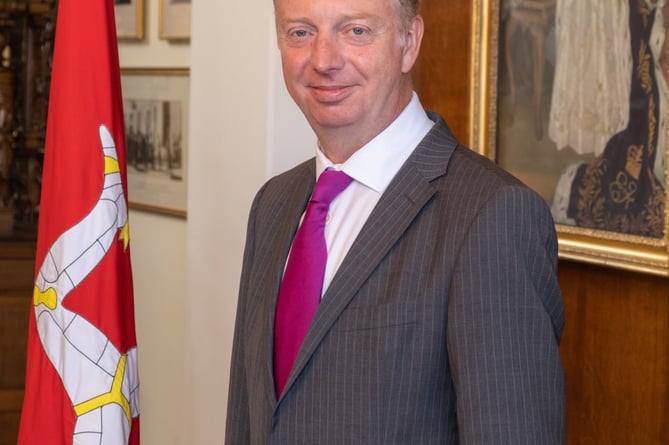The Treasury minister has said the government can’t help everyone with the current cost of living crisis.
Alex Allinson made a financial statement to Tynwald in which he detailed the government help available for those in vulnerable financial positions.
The point was made by MHK Tim Glover that ‘the squeeze’ is getting ‘harder and harder’ with food prices going up ‘almost on a weekly basis’.
When asked what help was being given to those who aren’t on benefits or on lower incomes, Dr Allinson said: ‘The so-called squeezed middle, those on low or medium incomes, are benefiting from some of the things we’ve brought in, such as freezing electricity prices and the cap on bus fares.
‘We cannot accommodate every single individual’s increased costs in terms of the inflationary pressures that affected everyone around the world.
‘What we will do though with government agencies is look at how to get these people through the winter long-term, one of the most important parts of the economic strategy that this court passed was to raise medium incomes.
‘One of the reasons people are under so much pressure at the moment is medium wages have flat lined over the last 10 years. When you look at government revenue, that has also flat lined over the last 10 years.
‘It is absolutely imperative that we drive that economic growth for the benefit of all the people on our island.
‘That is why investment in infrastructure and business is very, very important.’
Within his statement to Tynwald, Dr Allinson announced further support for those in a vulnerable financial position.
A third round of energy support payments and family support payments will be introduced.
Energy support payments, worth £300 per household, are payable to households responsible for housing costs who are getting an income related benefit.
The first round of these payments was made in April, the second in October, and this order provides for a third round payable this month.
Dr Allinson explained that this third round would replace the winter bonus normally paid in January to certain recipients of income support.
However, energy support payments are payable to a wider range of people who get income-related benefits, including those getting employed person’s allowance and income based jobseeker’s allowance.
Giving additional help in this way will ensure more low income households will benefit, Dr Allinson said.
The total cost of the three rounds of the energy support payments paid this year has been estimated to be just over £3 million, benefiting up to 3,500 households.
Family support payments worth up to £400 per household are payable to all families receiving child benefit.
Those receiving full rate child benefit will receive £300.
As with the previous two rounds, an additional £50 will be paid to all families receiving child benefit with two children, and £100 for families with at least three children.
The first round of family support payments was paid in May, the second round was paid in November, and it is now proposed that a third round of payments is made in December.
The total cost of these three rounds of family support payments is estimated to be approximately £5.4 million, benefiting more than 6,000 families.
Dr Allinson added: ‘We have committed to continue delivering the Christmas bonus at a higher level and to a wider range of beneficiaries than in the UK.’
He told Tynwald members that he is aware of other sectors of society feeling financial pressure this winter so he is currently working with Treasury officers to bring back a repeat payment of the long term benefit support payment in January.
This will directly benefit all pensioners, those with disabilities and those on other long term support.
If approved, this would add another £5.6 million to the total amount of support given to the community.
The minister ran through the issues the public and government have faced this year, including Russia’s invasion of Ukraine, international shortages, gas and oil price rises, and the knock on effects of inflation eating into household budgets and placing extra strain on business finances.
He said this administration reacted with numerous financial support packages and in September froze electricity prices as well as bus fare caps.
Dr Allinson also mentioned the sudden increase in interest rates, affecting mortgages and loans, which led the government to provide additional support.
‘But we have always been honest that we cannot effectively help everyone, and that as a society we will have to adjust and adapt to get through this winter and face the challenges 2023 may bring,’ he said.
Dr Allinson added that payments will be made ‘as soon as possible’ but the government is trying to bring support forward in ‘a phased way’, with lots of bills hitting homes in January.
Douglas North MHK David Ashford asked the minister what will happen post-March when the electricity price cap ends, to which he said the government is liaising with Manx Utilities and aims to come back to Tynwald in January with a ‘better estimation’ of what will happen after March 31.




